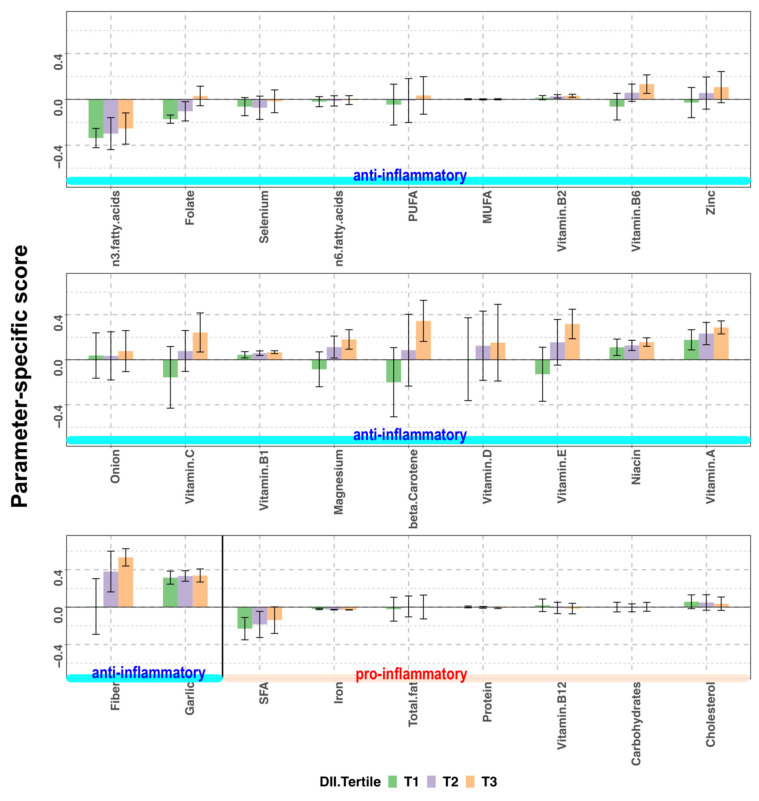Figure 4.
Parameter-specific scores according to the tertiles (T) of energy-adjusted dietary inflammatory index (E-DII) score in pregnant women of a birth cohort, BC-GENIST, in Japan. Bars represent the mean and error bars represent standard deviation (SD). The anti-inflammatory and pro-inflammatory parameters constituting the E-DII score are shown from left to right, from the lowest to the highest mean score of the entire cohort. Since the overall inflammatory effect scores of anti-inflammatory parameters are negative, lower intake of anti-inflammatory nutrients compared to the global mean result in a positive parameter-specific score. In contrast, as the overall inflammatory effect scores of pro-inflammatory parameters are positive, higher intake of pro-inflammatory nutrients result in a positive parameter-specific score. Higher E-DII scores indicate higher inflammatory potential. SFA, saturated fatty acids; MUFA, monounsaturated fatty acids; PUFA, polyunsaturated fatty acids; n = 36 (T1), 36 (T2), and 36 (T3).

